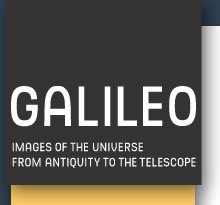


The reflections of the first philosophers, active on the seaboard of Asia Minor in the 6th and 5th centuries B.C., mark the beginning of scientific astronomy. The mythological tales of the Sun, the Moon and the heavenly bodies were replaced by ideas of revolutionary importance on the structure and workings of the cosmos. While searching for the single principle from which all matter originates, the Greek philosophers developed thoughts that proved capable of rationally explaining the phenomena they observed. Pythagoras and his circle (5th century B.C.) were the first to conceive of the cosmos as a sphere and of the heavenly bodies as endowed with uniform, circular motion. The chaos of the beginnings is offset by the order of the world, the κοσμος, which cannot cease because it is divine in origin. Maintaining the fundamental assumption of the cosmos' spherical nature and the regularity of its circular motions, the Greeks worked out models that - with the cosmological systems of Plato, Eudoxus of Cnidus and Aristotle - were fated to have an enormous impact on subsequent developments in astronomy.